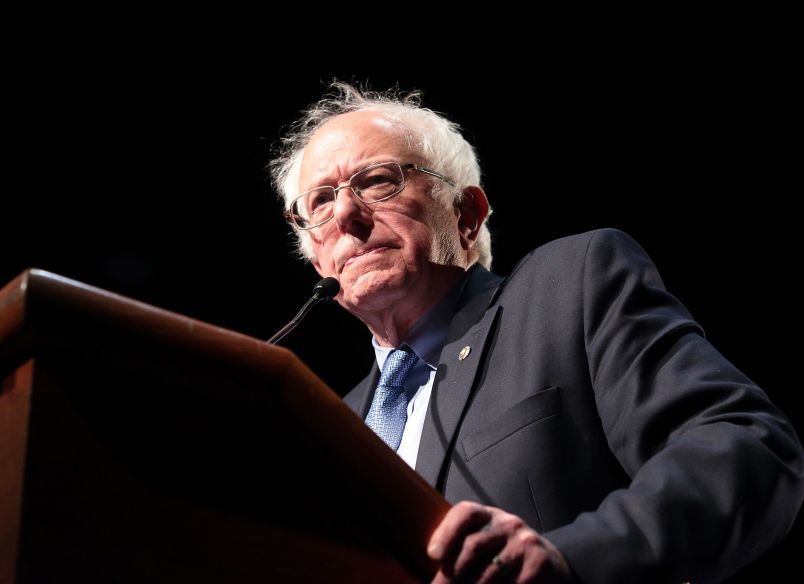Last week, the Sanders campaign announced that it was laying off almost half its staff. In addition to the reality of the situation, the nature of the announcement struck me as a somewhat subtle but intentional signal about the campaign’s future. But now Sen. Sanders is confidently announcing that the Democrats will have a contested convention.
Now, ‘contested convention’ doesn’t have any real technical meaning. But it certainly seems like Sanders is saying there will be no move to building party unity in advance of the convention (put that off to August, apparently) and his campaign will force genuine votes on the floor of the convention while pressing Super Delegates to back him.
Let’s set out explicitly what this means: there is simply no way that Sanders can catch up with Sen. Clinton in either delegates or the popular vote. He may prevent her from getting to 50%+ of the pledged delegates, though I’m skeptical of that. But she will come to the convention as the clear winner in delegates and the popular vote. That means – and the Sanders campaign is saying this openly – that their plan is to get Super Delegates to overrule the results of the primary selection process and make him the nominee.
First of all, there’s simply no way that is going to happen. This is why the whole super delegate question has been largely bogus from the beginning. You can say all these super delegates support Clinton. But there’s simply no way they wouldn’t flip to Sanders if he had a clear majority of the delegates, especially if he also had a clear majority of the popular vote. It’s not just me saying that. Look what happened back in 2008. Virtually all the Clinton super delegates eventually flipped to Obama.
The case where supers might really come into play would be a situation where one candidate had a thin lead in delegates but had clearly lost the overall popular vote. The popular vote has no formal meaning in the process. But such a mismatch between the two outcomes might allow the super delegates to feel they could get away with or even have an obligation to step in.
But there’s nothing like that here. Hillary is the clear, clear winner on both fronts. (We might add that Sanders’ numbers heavily leverage states with caucuses, which mainly function as ways to keep participation really low.)
For the same reason they wouldn’t try to help Clinton overturn the clear verdict of the primary process in 2008, they certainly aren’t going to help Sanders overcome it in 2016. Add to that that most do genuinely support Clinton over Sanders. But even though it’s not going to happen, how exactly does Sanders, with a straight face, say that his strategy is to have the reviled ‘establishment’ step in and give him the nomination by overruling the actual voters?
Usually in the process of ramping down a campaign or shifting its emphasis to institution building post-campaign, there are ups and downs, some contradictory hints and moves. Maybe this is just one of those. But the only net effect of this is to delay any effort at party unification and force feed supporters with a deeper sense of grievance, continuing the pattern of trying to convince them he’s been cheated or that the system is rigged when in fact the ‘riggedness’ of the system has mainly helped him.






